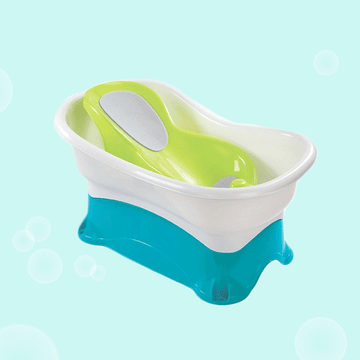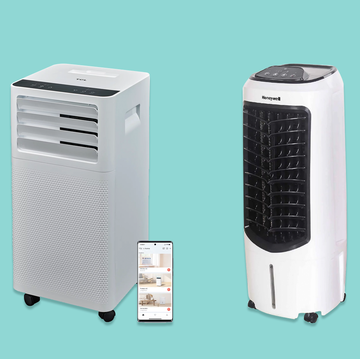We've been independently researching and testing products for over 120 years. If you buy through our links, we may earn a commission. Learn more about our review process.
8 Best Cordless Leaf Blowers, Tested by Experts
Whether gas or battery-powered, our top picks bring the power and convenience.
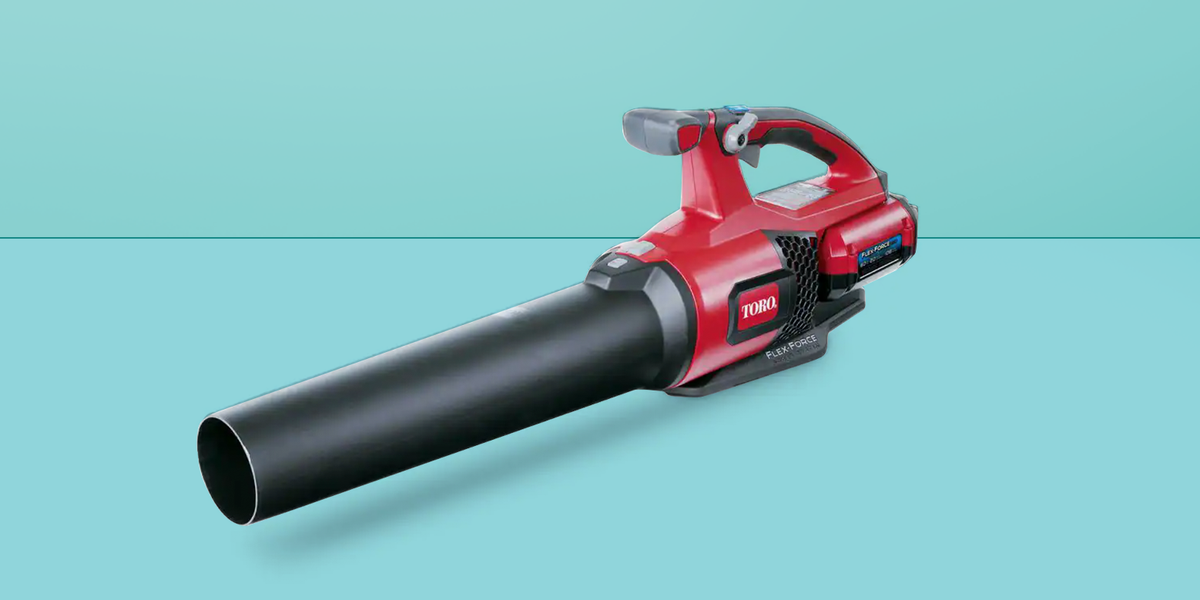
While you can still find corded electric leaf blowers, they've mostly gone the way of flip phones and DVDs. "A cordless leaf blower is the smart choice for nine out of 10 homeowners," says Rachel Rothman, chief technologist and executive technical director at the Good Housekeeping Institute. Ever-improving lithium-ion battery technology is the main change agent, which is why most of our cordless leaf blower picks run on rechargeable batteries. But our round-up includes a few gas leaf blowers for consumers who are willing to trade some extra noise and emissions for maximum power.
Our top picks:
- 1

Best Overall Cordless Leaf Blower
Toro 60-Volt Max Flex Force Cordless Leaf Blower with Battery and Charger
Read more - 2
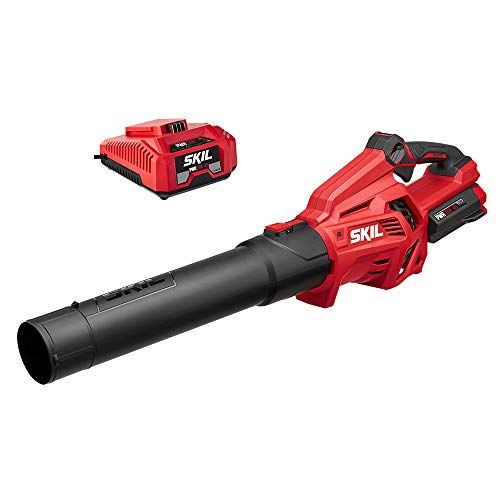
- 3
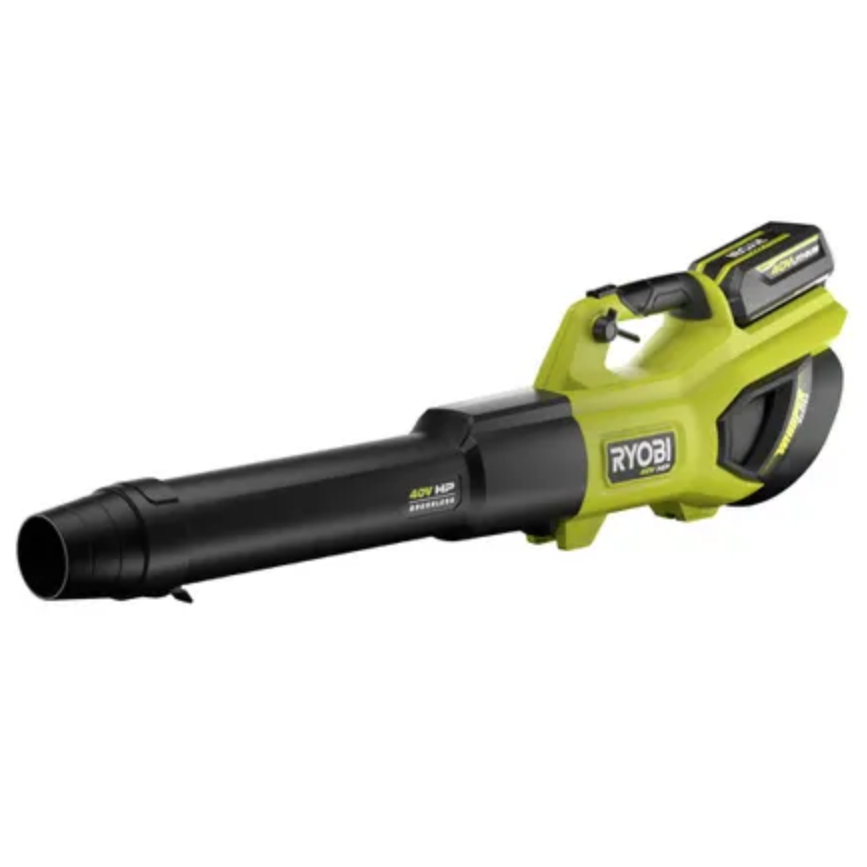
Best Battery-Powered Cordless Leaf Blower
Ryobi 40V Whisper Series Cordless Leaf Blower with Battery and Charger
Read more - 4
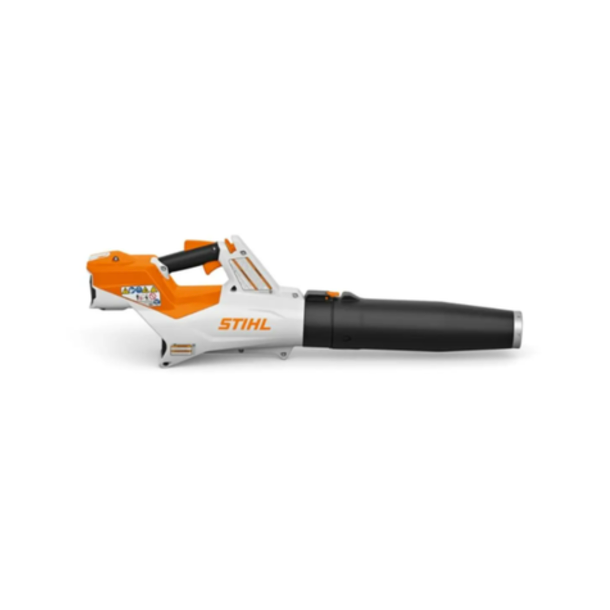
- 5
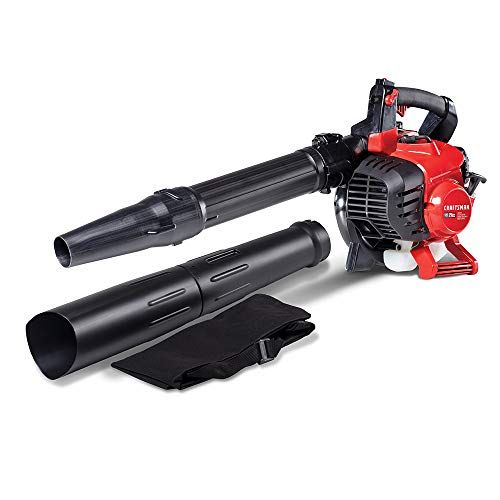
- 6
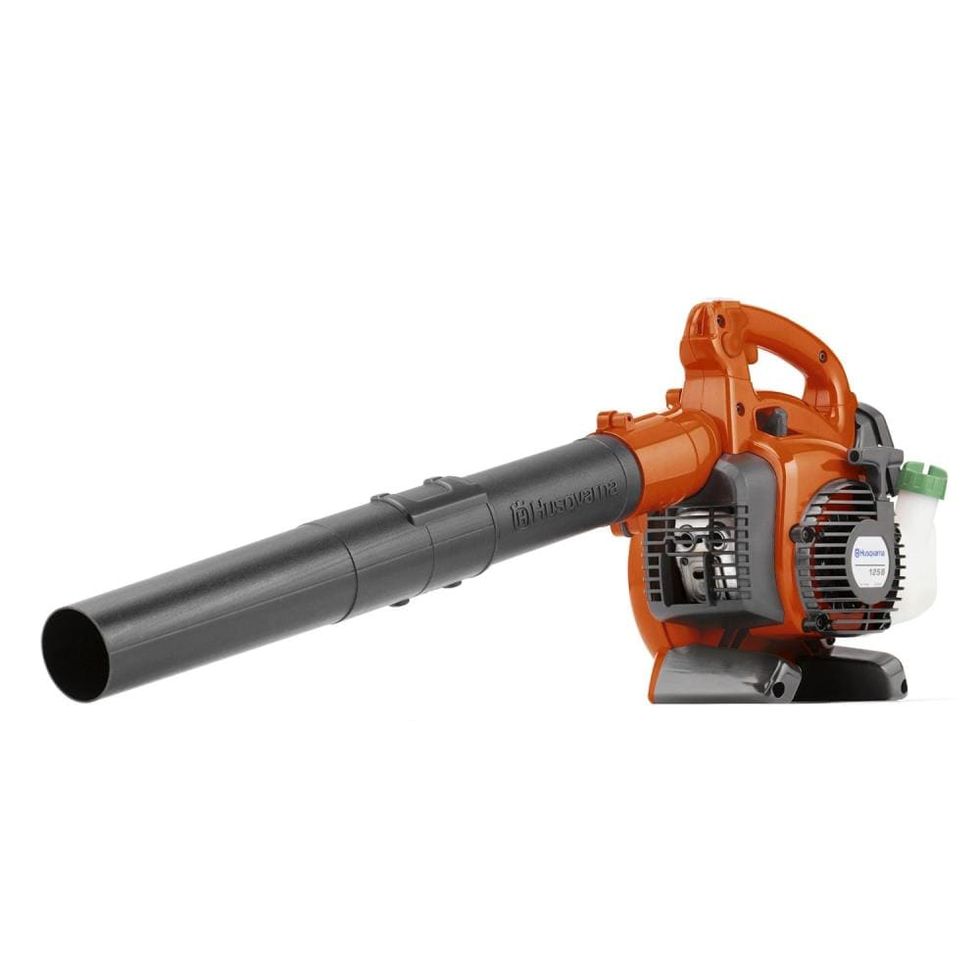
- 7

- 8

Best Cordless Leaf Blower for Large Yards
Champion Power Equipment Walk-Behind Push Gas Leaf Blower
Read more
When putting leaf blowers through their paces, the experts at the Good Housekeeping Institute first evaluate the machines in our Home Improvement & Outdoor lab for ease of setup, construction quality and more. Further testing happens in the field, where our team turns the blowers on thick blankets of leaves, debris-strewn sidewalks and even light snowfall. The top cordless leaf blowers combine power and control without waking the neighborhood with ear-splitting noise.
Once you’ve read through our leaf blower picks, don’t miss our expert advice on keeping your yard tidy throughout the year, including everything you need to know when shopping for leaf blowers. Also, check out our latest round-ups of the top-performing lawn mowers, snow blowers and more.
Toro 60-Volt Max Flex Force Cordless Leaf Blower with Battery and Charger

Toro 60-Volt Max Flex Force Cordless Leaf Blower with Battery and Charger
Pros
Excellent sweeping power
Turbo mode for loosening leaves
Durable design
Cons
Noisier than a few others on the list
Toro is a perennial powerhouse in our leaf blower tests and the brand is at it again with the 60V Flex Force. And for under $200, it's a steal. One tester noted, “it’s a ton of power in your hand, but it’s surprisingly easy to control.” Our experts credit the Toro’s lightweight, ergonomic design and variable-speed trigger with cruise control, which makes it easy to harness all the force coming out of the 565-CFM motor, even in turbo mode. Impressive run time on the 60V lithium-ion battery kept our testers going on large leaf-clearing jobs (though the turbo mode does gobble up power quickly). The brushless motor technology, which we’re seeing on more power tools, should extend the lifespan of the blower. Its 63-decibel noise level is a tick higher than the quietest battery-powered models, so noise might be the biggest reason to consider another blower.
Key Specs
| Type | Battery-powered handheld |
|---|---|
| Maximum air flow | 565 CFM |
| Maximum air speed | 110 mph |
| Weight | 10 lbs |
| Noise rating | 63 dB |
Skil PWR Core 40 Cordless Leaf Blower Kit


Skil PWR Core 40 Cordless Leaf Blower Kit
Pros
Great price
Variable-speed control
Solid construction
Cons
Some users complain of short battery run time
Skil is the DIY-friendly brandmate of Skilsaw, which is aimed at professionals. Though Skil leaf blowers are well-priced, they offer many of the same features as Skilsaw, making for a high-value, high-performance product. The PWR Core 40 is a prime example. Our experts point out the impressive 500 CFMs of airflow, helping make short work of heavy leaf clearing. “For the price, this leaf blower is also solidly built, including its brushless motor, a design that our tests have found to be durable over time,” says Rachel Rothman, Chief Technologist at the Good Housekeeping Institute. The relatively lightweight leaf blower also boasts many user-friendly features, like the variable-speed control and fast-charging battery, though some users noted that the battery run time is short.
Key Specs
| Type | Battery-powered handheld |
|---|---|
| Maximum air flow | 500 CFM |
| Maximum air speed | 120 mph |
| Weight | 8.38 lbs |
| Noise rating | Not available |
Ryobi 40V Whisper Series Cordless Leaf Blower with Battery and Charger

Ryobi 40V Whisper Series Cordless Leaf Blower with Battery and Charger
Pros
Quiet operation
Impressive sweeping power
Fast-charge battery
Cons
On the heavier side
A formidable whoosh rushes from this battery-powered Ryobi when you pull the trigger, but at 57 decibels, the noise level is much quieter than other blowers we tested, especially gas models. Its variable-speed trigger made it easy to switch from low-speed sweeping to turbo-boosted loosening of stuck-on debris. “The cruise control setting is helpful when you’re in the zone, methodically clearing leaves from the middle of the yard,” says Rothman. As with many Ryobi tools, a second battery is included, along with a rapid charger that our tests confirmed needs just 40 minutes for a full charge. One thing to keep in mind is that it is on the heavier side.
Key Specs
| Type | Battery-powered handheld |
|---|---|
| Maximum air flow | 730 CFM |
| Maximum air speed | 190 mph |
| Weight | 9.7 lbs |
| Noise rating | 57 dB |
Stihl BGA 60 Cordless Leaf Blower with Battery and Charger

Stihl BGA 60 Cordless Leaf Blower with Battery and Charger
Pros
Excellent sweeping and loosening power
Durable construction and design
Cons
Relatively short battery run time
Stihl bills the BGA 60 as its "most powerful battery-powered blower." After several weeks of field tests witnessing its excellent sweeping and loosening power, our experts are inclined to agree. "The blower almost jumps out of your hand when you kick it into boost mode," one tester noted, referring to the maximum-power setting of the variable-speed motor. The Stihl combines impressive oomph with an incredibly lightweight design and quiet operation — at 7.8 pounds, it's the lightest of all top picks and its 56 decibels is the lowest noise rating. Our experts also like its durability, including the brushless motor and the metal ring on the blower nozzle, a unique feature that should protect against wear and tear over years of service. The one tradeoff is a relatively short run time of its battery pack — about 16 minutes at normal speed and 13 minutes in boost mode. So it's best suited to small to mid-sized yards, say, 1 acre or less.
| Type | Battery-powered handheld |
|---|---|
| Maximum air flow | 459 CFM |
| Maximum air speed | 154 mph |
| Weight | 7.9 lbs |
| Noise rating | 56 dB |
Craftsman Gas Powered Leaf Blower with Vacuum Kit

Craftsman Gas Powered Leaf Blower with Vacuum Kit
Pros
Two-in-one blowing and vacuuming
Lightweight design
Translucent tank for foolproof refilling
Cons
Noisy operation
Higher maintenance
Not only is this Craftsman a capable leaf blower, but its vacuum kit allows you to suck up small piles of leaves and other yard debris from under shrubs or against foundation walls. Think of it as the perfectionist's leaf blower. Our experts say the vacuum's lightweight design reduces hand and arm fatigue. They also like the feature set, which includes a translucent fuel tank and variable speed motor, helpful when switching between yard cleaning tasks or moving across different surfaces, from thick lawns to paved driveways. As with all gas-powered blowers, the Craftsman is fairly noisy, so take that into consideration if there are neighbors close by. Its two-stroke engine means you'll need to mix your own fuel and oil.
Key Specs
| Type | Gas-powered handheld |
|---|---|
| Maximum air flow | 450 CFM |
| Maximum air speed | 205 mph |
| Weight | 10.2 lbs |
| Noise rating | Not available |
Husqvarna 125B Gas Leaf Blower

Husqvarna 125B Gas Leaf Blower
Pros
Big blowing power
Well priced
Ergonomic and lightweight
Cons
Noisy operation
This hardy gas-powered leaf blower from Husqvarna can move a lot of air in a hurry — 470 cubic feet per minute at a speed of 170 miles per hour to be exact. That translates into serious sweeping power. The lightweight construction and ergonomic design maximize comfort and control, while the cruise control setting is nice if you have a lot of leaves to clear and don't need to switch speeds. The clear gas tank is helpful for determining when it's time to refuel. Just be prepared for noisier operation than an electric model — ear protection is a must.
Key Specs
| Type | Gas-powered handheld |
|---|---|
| Maximum air flow | 470 CFM |
| Maximum air speed | 170 mph |
| Weight | 9.4 lbs |
| Noise Rating | 70 dB |
Echo Backpack Blower

Echo Backpack Blower
Pros
Excellent clearing power
Vented design provides cooling
Clear gas tank
Cons
Noisy
Harder to maintain
The Echo is the kind of leaf blower you might see being handled by a burly worker on a landscaping crew. It’s a rugged, powerful blower with a 1,100 CFM engine that can really make leaves fly. Our engineers like the vented back pad that provides cooling comfort during long runs or warm days. The 79.9 cc two-stroke engine is definitely pro-grade, but that means a little more care and maintenance on your part, including mixing in the right amount of oil and adding a fuel stabilizer at the end of the season. But the gas tank is clear which makes keeping tabs on fuel levels easier. "The Echo is also the noisiest pick on our list, so be sure to use ear protection," notes Rothman. Also double check that your municipality doesn't have noise limits on outdoor power equipment, since the Echo is likely to exceed them.
Key Specs
| Type | Gas-powered backpack |
|---|---|
| Maximum air flow | 1,100 CFM |
| Maximum air speed | 220 mph |
| Weight | 31 lbs |
| Noise rating | 80 dB |
Champion Power Equipment Walk-Behind Push Gas Leaf Blower

Champion Power Equipment Walk-Behind Push Gas Leaf Blower
Pros
Great for large yards
Very good value
Strong blowing power
Cons
Requires extra storage
Walk-behind push blowers are the tool of choice for large yards surrounded by leafy trees. They tend to be pricey, but this gas-powered Champion is quite affordable while delivering all the oomph — up to 1300 CFM — you’ll need to clear thick blankets of leaves all season long. Like all walk-behind blowers, the 97-pound push machine is a lot to move, but the beefy 12-inch rear wheels help maneuver over all kinds of terrain. The Champion also has many ergonomic features our experts look for, like a soft grip and adjustable-height handle that minimize hand and arm fatigue. Keep in mind that you’ll need more storage space for the wheeled unit, which measures 3 feet wide and nearly as deep. It's also quite noisy, so ear protection is essential, and the machine might be in violation of local noise ordinances.
Key Specs
| Type | Gas-powered walk-behind blower |
|---|---|
| Maximum air flow | 1,300 CFM |
| Maximum air speed | 160 mph |
| Weight | 97 lbs |
| Noise rating | 77 dB |
How we test cordless leaf blowers
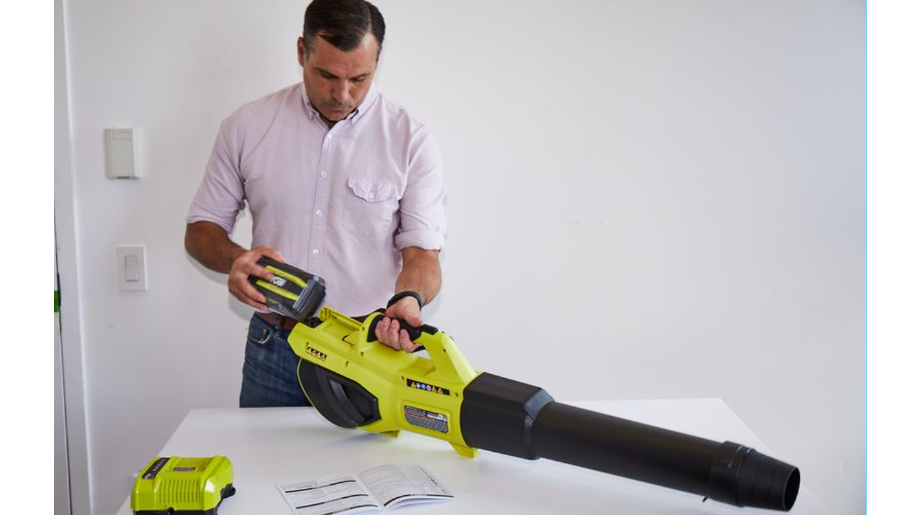
Our product experts keep up with the marketplace to identify top-selling leaf blowers that you’re most likely to find at stores and online. We attend trade shows and industry events like Equip Exposition to stay on top of the latest in lawn and yard care. When choosing specific models for testing, we focus on brands that have performed the best and proved the most reliable through years of testing at the Good Housekeeping Institute. We also consider newer brands with unique features or innovations.
Hands-on testing starts in our Lab where we assess ease of assembly, quality of construction, battery life, convenience features, noise and more, as pictured. Various product experts also take leaf blowers home to evaluate them in the real-world conditions of their yards. In the field, they clear leaves, grass clippings and more, assessing each blower's ability to sweep away loose debris and remove embedded particles from the lawn. They also evaluate ease of use, for example, noting how quickly hand fatigue sets in, based on the weight of the machines and the comfort of the handle. And they note how noisy the machines are in actual neighborhood settings.
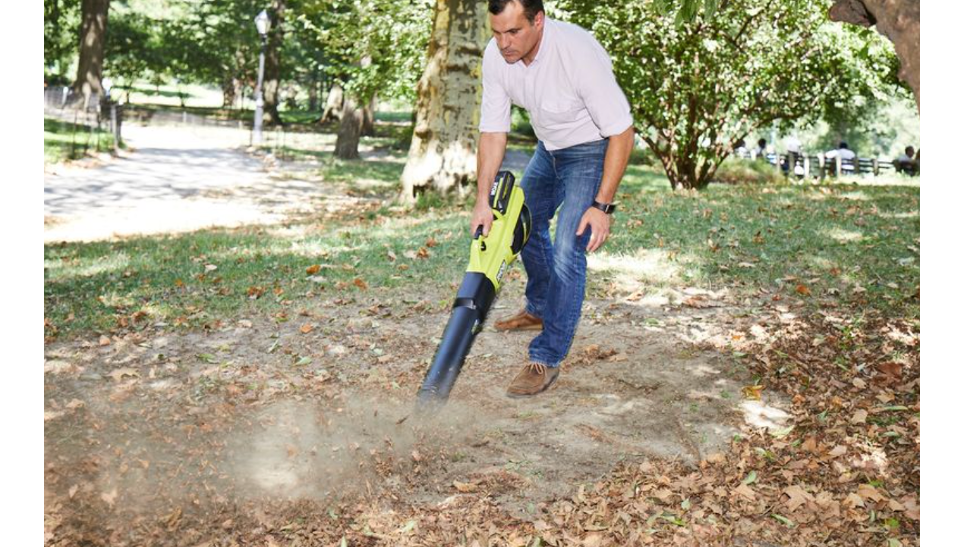
Our performance tests, pictured above, focus on how quickly and cleanly models removed leaves and debris (and vacuumed and mulched, when applicable). We also evaluate usability — for example, the intuitiveness of the controls and the run-time of battery-powered blowers. The best cordless leaf blowers are equally adept at sweeping loose leaves and removing embedded debris from grass or other groundcover.
What to look for when choosing the best cordless leaf blower

The first and most critical choice is deciding between a gas- or battery-powered model. Here are the key pros and cons:
✔️ Gas-powered engines tend to be more powerful but are also louder (so much so that some communities prohibit their use) and are often more difficult to start. Most have two-stroke engines, which require mixing fuel and oil. Backpack and walk-behind cordless blowers almost always run on gas.
✔️ Battery-powered engines use a rechargeable battery that usually provides about 30 minutes of run time. They used to be less powerful than gas models, but they've become much better as of late. Very little maintenance is required, making them a very popular option.
Once you've figured out which type of cordless leaf blower is the best fit, here are some features that our experts recommend looking for:
• Variable-speed control: This lets you adjust the blower power, from higher speed when clearing open areas to lower speed when you're close to the house or foundation plants. Cruise control is also nice since it lets you take your hand off the trigger.
• Multi-purpose: Some leaf blowers can also vacuum leaves and mulch them to bits. Consider the ease of converting between different modes. Some blowers convert with the flick of a switch, while others use different tubes or nozzles that you have to attach and detach in order to convert. For more information on multi-purpose leaf blowers, including top picks from our experts, see "8 Best Leaf Vacuums to Make Yard Work Even Easier."
• Ergonomic grip: Softer grips minimize hand fatigue. Models with a second grip towards the nozzle tend to offer better handling.
How is leaf blower power measured?

There are a few factors involved. If the equipment has a vacuum and mulching mode, you'll also want to pay attention to its claimed capacity.
✔️ Blowing power: The power of a leaf blower is determined by how much air it is able to blow out, which is measured in cubic feet per minute (CFM), and how quickly it does so, which is measured in miles per hour (mph). The ideal combination of the two measurements depends on the nature of the blowing work. For example, if your yard is filled with large, dry leaves, high air flow (500 CFM and up) will give you excellent sweeping power. If you live in a wet region with small, sticky leaves, high air speed (150 mph or more) will deliver superior loosening power.
✔️ Vacuuming power: This applies to leaf blowers that also have a vacuum mode, good for sucking up small piles of leaves and debris from under bushes and around foundation walls. Like blowing power, vacuuming power is determined by a combination of airflow (CFM) and speed (mph). The power of a blower is measured by how much air a blower is able to take in and how fast it does so. Multi-purpose leaf blowers often have similar vacuuming and blowing power, but it's important to know both when purchasing a convertible machine.
✔️ Mulcher reduction ratio: Some blowers also have a mulching mode and bag attachment for collecting smaller volumes of leaves. The mulcher reduction ratio is the ratio between the number of bags of leaves that the vacuum encountered and the number of bags that the leaves were reduced to through mulching. Most mulchers have a reduction ratio of either 10:1 or 16:1.
Why trust Good Housekeeping?

Dan DiClerico has tested and written about leaf blowers for the better part of two decades. In that time, he has reported on the ban of noisy, gas-powered blowers in more municipalities nationwide, seen the performance of battery-powered models surge behind lithium-ion technology and shared extensive tips for quickly clearing a yard full of leaves. As Director of the Home Improvement & Outdoor Lab, Dan oversaw the latest round of leaf blower testing at the Good Housekeeping Institute, and also wielded several top picks at his home in Brooklyn, NY.
Rachel Rothman also brings extensive hand-on testing of leaf blowers. In her role as Chief Technologist & Director of Engineering at the Institute, Rachel helped develop the test protocol for the category, leveraging her training in mechanical engineering and applied mathematics to understand factors like air speed, air flow and noise decibels. Rachel also routinely tests leaf blowers and other outdoor power equipment at her home on Long Island, NY.
Having written thousands of product reviews and how-to articles on all aspects of home ownership, from routine maintenance to major renovations, Dan (he/him) brings more than 20 years of industry experience to his role as the director of the Home Improvement & Outdoor Lab at the Good Housekeeping Institute. A one-time roofer and a serial remodeler, Dan can often be found keeping house at his restored Brooklyn brownstone, where he lives with his wife and kids.
Watch Next

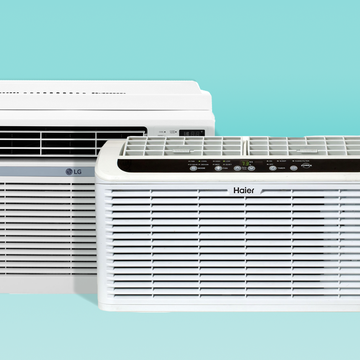
The Best Window Air Conditioners for Your Home
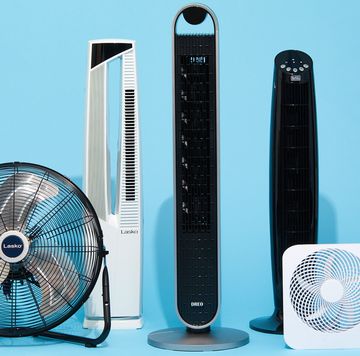
9 Best Fans of 2023 to Cool Your Whole Home
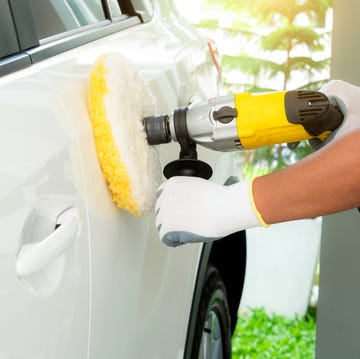
4 Best Car Buffers of 2023

21 Best College Backpacks of 2023
